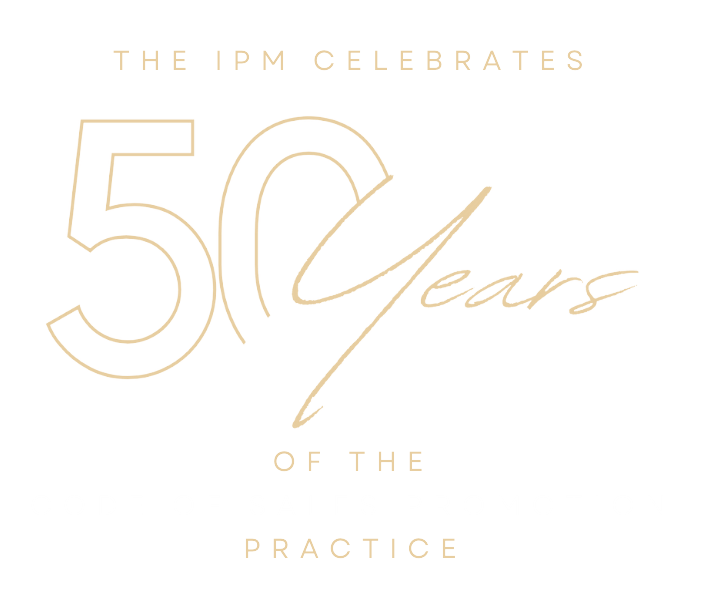This year, the promotional marketing community celebrates a considerable milestone—the 50th anniversary of the Code of Sales Promotion Practice. Established in 1974, this Code has been instrumental in guiding marketing practices and shaping consumer interactions for five decades. As we reflect on the early foundations and journey through the digital revolution and artificial intelligence, we recognise a tool that has consistently adapted to meet the evolving landscape of marketing. Shahriar Coupal, Director of the Committees of Advertising Practice at the Advertising Standards Authority, offers key insights into the Code’s enduring relevance and future.


This year, the promotional marketing community celebrates a considerable milestone—the 50th anniversary of the Code of Sales Promotion Practice. Established in 1974, this Code has been instrumental in guiding marketing practices and shaping consumer interactions for five decades.
As we reflect on the early foundations and journey through the digital revolution and artificial intelligence, we recognise a tool that has consistently adapted to meet the evolving landscape of marketing. Shahriar Coupal, Director of the Committees of Advertising Practice at the Advertising Standards Authority, offers key insights into the Code’s enduring relevance and future.

The Code was born out of necessity in 1974, during a period of public concern over misleading advertisement. This concern peaked at an Advertising Association conference when John Methven of the Office of Fair Trading underscored the need for a more robust system. Initially, the Code introduced provisions to ensure clarity in advertising messages, fairness in competition, and respect for consumer privacy—principles that were revolutionary at the time and set the stage for subsequent adaptations, including those necessary to address challenges posed by the digital revolution. The establishment of the Advertising Standards Board of Finance (ASBOF) in 1975 further underscored this commitment. ASBOF not only provided essential financial backing for regulatory efforts through a levy on advertising space costs but also bonded a collective commitment to upholding the health and integrity of advertising practices across the UK. IPM Regulatory Affairs Manager, Manny Roberts references the importance of the code and why the UK continues to be an industry leader.
The Code was born out of necessity in 1974, during a period of public concern over misleading advertisement. This concern peaked at an Advertising Association conference when John Methven of the Office of Fair Trading underscored the need for a more robust system. Initially, the Code introduced provisions to ensure clarity in advertising messages, fairness in competition, and respect for consumer privacy—principles that were revolutionary at the time and set the stage for subsequent adaptations, including those necessary to address challenges posed by the digital revolution. The establishment of the Advertising Standards Board of Finance (ASBOF) in 1975 further underscored this commitment. ASBOF not only provided essential financial backing for regulatory efforts through a levy on advertising space costs but also bonded a collective commitment to upholding the health and integrity of advertising practices across the UK. IPM Regulatory Affairs Manager, Manny Roberts references the importance of the code and why the UK continues to be an industry leader.
Throughout the 2000s, the Code underwent significant updates to keep pace with digital technologies, ensuring that advertising and promotions on platforms like online and social media maintained appropriately high standards. These significant updates introduced specific clauses aimed at regulating advertising and promotional activity user-generated content, owned media, influencer partnerships, social media promotions, and mobile app-based promotions. Amendments were essential in clarifying the lines between authentic content and advertising, ensuring that all promotional activities could be easily identified and held to the same rigorous standards. Reflecting on these significant advancements, Shahriar Coupal remarks on the evolution of the code in response to new challenges in the digital marketing landscape.
Throughout the 2000s, the Code underwent significant updates to keep pace with digital technologies, ensuring that advertising and promotions on platforms like online and social media maintained appropriately high standards. These significant updates introduced specific clauses aimed at regulating advertising and promotional activity user-generated content, owned media, influencer partnerships, social media promotions, and mobile app-based promotions. Amendments were essential in clarifying the lines between authentic content and advertising, ensuring that all promotional activities could be easily identified and held to the same rigorous standards. Reflecting on these significant advancements, Shahriar Coupal remarks on the evolution of the code in response to new challenges in the digital marketing landscape.


In 2014, the rise of the internet as the primary medium for consumer complaints marked a pivotal shift in the advertising landscape. With 13,477 complaints registered against 10,202 ads in 2013—an increase of 35%—setting a new record for public complaints. In response to this demand, the Advertising Standards Authority embraced in the coming years, technological advancements in artificial intelligence. The introduction of the Active Ad Monitoring system in 2023, has significantly bolstered the regulatory capabilities of the ASA, providing more scope of these regulatory measures, providing more comprehensive reporting on compliance levels and generating significantly greater numbers of irresponsible online ads amended or withdrawn.
Over the past five decades, the promotional marketing landscape has evolved dramatically. Technological advancements, changing consumer behaviours, and globalisation have reshaped the way brands engage with their audiences. Amidst these transformations, the principles enshrined in the of the Code of Sales Promotion Practice have remained steadfast, serving as a compass for marketers navigating the complex terrain of promotional activities. As we reflect on the significance of this Code today, it’s essential to acknowledge the ongoing relevance of regulation within the promotional marketing industry. In this digital era defined by rapid advances in digital technologies, the IPM remains firmly committed to supporting the ASA and CAP in ensuring that the UK remains at the forefront of advertising regulation.
News
Pringles × Super Mario: The Boss Level Brand Partnership That Won the IPM Grand Prix
Brand Culture, last year’s IPM Grand Prix winners, reveal how Pringles × Super Mario turned a brand partnership into shelf-side excitement, from the Mystery Flavour “question block” idea to collectable character cans.
HFSS Advertising Regulations: What Marketers Need to Know
HFSS regulations have entered a new phase. This article breaks down what the latest rules mean for marketers, where the key risks sit, and how IPM tools and legal support can help.
Promotions Wrapped! Playing Back the Biggest Trends of 2025
From Superman on The Shard to ‘AI slop’, see what cut through in 2025...
News
Pringles × Super Mario: The Boss Level Brand Partnership That Won the IPM Grand Prix
Brand Culture, last year’s IPM Grand Prix winners, reveal how Pringles × Super Mario turned a brand partnership into shelf-side excitement, from the Mystery Flavour “question block” idea to collectable character cans.
HFSS Advertising Regulations: What Marketers Need to Know
HFSS regulations have entered a new phase. This article breaks down what the latest rules mean for marketers, where the key risks sit, and how IPM tools and legal support can help.
Promotions Wrapped! Playing Back the Biggest Trends of 2025
From Superman on The Shard to ‘AI slop’, see what cut through in 2025...





